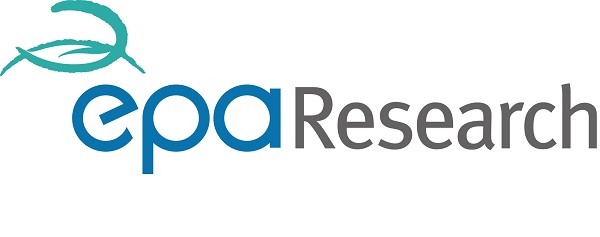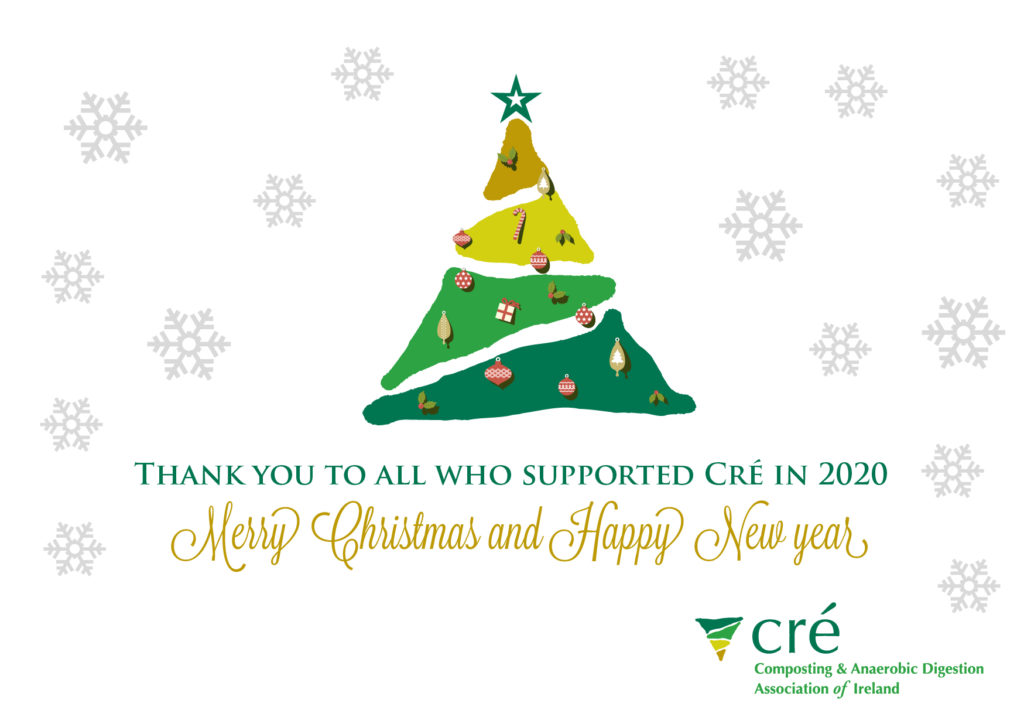Press Release (15.12.2021)
Ireland has potential to avoid emissions from 44,000 cars by using compost to store carbon in soils
Today, Cré launches a report on the contribution of compost to soil carbon sequestration. Cré believes that soil carbon sequestration is one of the critical paths to achieve net-zero emission.
The Cré report is timely as the European Commission is expected to publish a policy document on its carbon farming initiative today, which aiming to increase carbon sequestration and boost the income of farmers, along with providing an environmental benefit.
Furthermore, based on the current scientific evidence, Cré believes that compost plays a leading role in optimising soil carbon sequestration and improving soil health. Research has demonstrated that 60–150 kg of CO2 equivalent is sequestered in the soil for every tonne of compost applied.
By organically recycling the hundreds of thousands of tonnes food and garden waste generated by households and businesses every years in Ireland to produce high quality compost the resulting benefits for carbon sequestration and greenhouse gas emissions savings are to equivalent to taking 44,000 cars off the road every year.
Julian Beatty, Cré Carbon Task Group Leader, said: “As a nation built on agriculture, we recognise the importance of soil health. There is a presumption our soils are healthy, but unfortunately, not just in Ireland but globally, soils are being depleted at a frightening rate, and we must act now. By recycling all our organic waste back to soil in the form of high-quality compost, we will not only improve soil health but, as this report shows, will sequester carbon, so essential for our climate goals. I want to thank everyone who helped put this report together and urge policymakers and stakeholders to read it and engage with Cré on its call to action.”
Within the report, Cré outlines a number of recommendations to maximise the potential of organic recycling of food and garden waste in the context of carbon sequestration and soil health
CRÉ’S CALL TO ACTION:
- In line with scientific evidence, Cré is recommending valorising the role of compost in soil carbon sequestration.
- The Government should incentivise agriculture (livestock, tillage and horticulture) to improve soil carbon sequestration and farmers to trade carbon credits.
- There is a need to incentivise an increase in the quality and quantity of biowaste collected and processed to increase the supply of good quality compost available to the market.
- There are currently no comprehensive field trials in Ireland using organic ameliorant (e.g. composted green/ biowaste) that examine carbon sequestration in soil. Fields trials should be established
- Cré supports any action that recognises the value of carbon sequestration in mitigating climate change and progress to net zero.
The report was prepared by the Cré Carbon Task Group: Dr Brian Murphy (Enrich), Percy Foster (Cré), Karen Mahon (OCAE) and Julian Beatty (Nova-Q).
ENDS
Contact:
Percy Foster, CEO
Cré – Composting and Anaerobic Digestion Association of Ireland
T: 0868129260
E: percy@cre.ie


